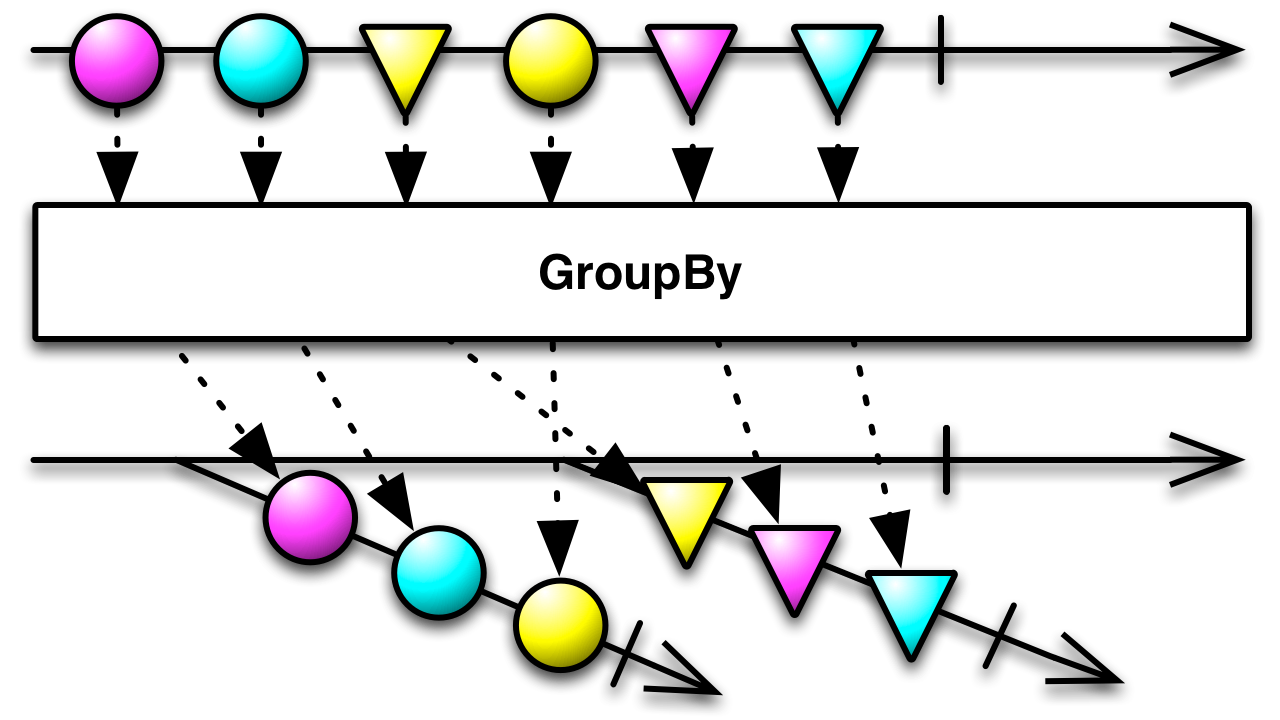Divides an Observable into a dynamic set of Observables that each emit GroupedObservable from the original Observable, organized by key.
GroupByDynamic differs from GroupBy for two reasons:
- We don't need to pass a fixed set length.
- The distribution function is a
func(rxgo.Item) stringinstead of afunc(rxgo.Item) int. The rationale is because of possible collisions. For example, if our distribution function produces 128-bit UUIDs, there is a collision risk if such a UUID has to be casted into an int.
count := 3
observable := rxgo.Range(0, 10).GroupByDynamic(func(item rxgo.Item) string {
return strconv.Itoa(item.V.(int) % count)
}, rxgo.WithBufferedChannel(10))
for i := range observable.Observe() {
groupedObservable := i.V.(rxgo.GroupedObservable)
fmt.Printf("New observable: %d\n", groupedObservable.Key)
for i := range groupedObservable.Observe() {
fmt.Printf("item: %v\n", i.V)
}
}Output:
New observable: 0
item: 0
item: 3
item: 6
item: 9
New observable: 1
item: 1
item: 4
item: 7
item: 10
New observable: 2
item: 2
item: 5
item: 8
